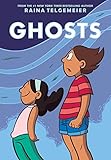https://www.scoop.it/t/good-ideas-about-learning
I have been curating on the Scoopit board since 2013. There are hundreds of ideas about “learning how to learn”
https://www.scoop.it/t/good-ideas-about-learning
I have been curating on the Scoopit board since 2013. There are hundreds of ideas about “learning how to learn”
Agency Beliefs About Learning Learning How to Learn
I have long been a proponent of teaching school kids “how to learn”.
Starting in Kindergarten!
Why?
Because I worry about what happens when kids struggle with learning and do not know how to advocate for themselves?
Who are those kids?
Beliefs About Learning Kindergarten Learning How to Learn Student Voices Uncategorized
AGENCY
Having a voice
“When children have a say in what is going on around them, they start to develop the sense that their ideas and opinions matter. As educators we can encourage children’s sense of agency by
welcoming and responding thoughtfully and respectfully to their questions and ideas and, where possible, incorporating their ideas and suggestions when we plan and implement experiences. Allowing children a voice in what goes on means sharing some of our power and control, but it also helps to promote a more positive, open and cooperative dynamic between adults and children.
Vital ways of listening to and honouring children’s voices include using children’s interests as the basis for our programs; responding to children’s criticisms or comments; and allowing children to help make decisions that affect them.
However, this listening can happen in more subtle ways as well. As educators we have a responsibility to respond to what children are telling us—both directly and through their behaviour and actions.
Reading children’s cues and responding to them is an important skill for educators to have. This is especially the case with very young children who may not be able to communicate their needs and wishes verbally.
…….”
Agency Beliefs About Learning Collaborative Learning Community Executive Function Learner's Stories Student Voices Voices and Choices
Beliefs About Learning Learner Stories (Self-Management} Student Voices
I am backtracking to earlier posts on Metacognition Development. I will follow this post with a few others on Development from 2017 Postings.
The Development of Metacognitive Knowledge in Children and Education
| Author: | Noboru Kobayashi, M.D., Pediatrician, Director, Child Research Net Hirotaka Kataoka, Researcher, Benesse Educational Research and Development Center, Benesse Corporation |
| Issue Date: | October 30, 2009 |
| Section: | Brain & Education |
http://www.childresearch.net/projects/brain/01_08.html
A short excerpt:
“Not surprisingly, the development of theory of mind and metamemory are clearly shown to be strongly influenced by language. Moreover, language abilities at the ages of 3 and 4 significantly contribute to metamemory ability at the age of 5. It has been demonstrated that the early acquisition of high theory of mind competencies affects the acquisition of metacognitive language (vocabulary), for example, in the use of words such as “guess” and “think.”
Metamemory that is expressed in language, or declarative metamemory, is already present in preschool children and is thought to develop in stages during the elementary school years. It is related to the declarative knowledge that recalls facts in language, as mentioned above. Here, declarative metamemory refers to metamemory mediated by language and is opposed to what is called procedural metamemory. Even after entering puberty, metacognition is thought to continue to develop to enable the reading, comprehension, and memorization of complex texts.”
Beliefs About Learning Foundational Beliefs Student Voices
Here is a series of posts on Executive Function from Understood
For example–excerpts:
“Executive functioning issues are weaknesses in a set of important mental skills that are key to learning. Kids with executive functioning issues often struggle with working memory, flexible thinking and self-control.
What are executive functioning issues? They’re not a learning disability on their own. Instead, they’re weaknesses in a set of important mental skills that are key to learning.
Executive functioning challenges are complex. This overview can answer your basic questions about challenges with executive function, and show you what you can do to help your child. It can also lead you to the more in-depth information you’ll need throughout your journey. You’ll find expert tips and strategies to help your child, plus the latest research and guidance on how to work with your child’s school.
If you think your child might have executive functioning issues, here are steps you can take. If you recently learned your child struggles with these executive skills, find out what to do next.
https://www.youtube.com/watch?v=CYi2EzPkErs A 3 minute video
In this video, Stephanie M. Carlson, Ph.D., professor and director of research at the Institute of Child Development, University of Minnesota, explains what you need to know about executive function skills. Learn why some kids struggle with executive functions and what you can do to help nurture your child’s executive function skills”
Beliefs About Learning Executive Function Learning How to Learn Parents
Exploring Models of Learning: Both Academic and SEL
Here’s a Model of Learning that I curate on Pinterest: EMPOWER Learners
There are many posts that focus on models or dimensions of learning!
https://www.pinterest.com/franvt/empower-learners/ 
Beliefs About Learning Individual Differences Metacognition
What if young people designed their own learning?
https://theconversation.com/what-if-young-people-designed-their-own-learning-59153
A few short “excerpts”…that reflect a model that emphasizes Context-Based Instruction, that Begins with a Plan to Understand and Collaborate with Individual Children
“The current system is clearly not working for a large number of students. Levels of disengagement within schools are high and increase as students pass through secondary school.
To carry on batching children into year groups and teaching them the same content partly explains why there are high levels of disengagement, stress and underachievement.
Schools recognise that today’s complex world needs students who are capable in different ways” …..
“CUREE found that independent learning could improve academic performance, motivation and confidence. Studies showed some students in particular, such as those with special learning needs and socially excluded children, felt more engaged in their learning.
However, learning needed to be scaffolded with support and feedback. Teachers played a key role in facilitating students’ independence. Further empirical evidence would strengthen understanding of the size of the effect…..”
Beliefs About Learning Executive Function Learning How to Learn Metacognition Student Voices
What Path Can We Follow to Facilitate a Child’s Executive Function Learning?
Here’s one pathway to follow:
Begin with a Tentative Definition.
Understand Normal Development of Cognitive/Social/Emotional Learning.
Exploring Models of Executive Function, including models that address, for example, Self-Management, Self-Direction, Self-Regulation. These “Self-“ models often address the same attitudes, skills and behavior.
Translating the most promising model for your situation into Context-Based Instruction
*Begin with a Plan to Understand and Collaborate with Individual Children
*Choose Instructional Principles
*Sequence Goals and Objectives
 *Engage in Diagnostic Teaching
*Engage in Diagnostic Teaching
*Monitor Progress
*Work toward Generalization
Apply to A Domain and then Across Domains
Continue to Grow By Following the Literature (Reference List)
Beliefs About Learning Classrooms and Context Collaborative Learning Executive Function Lesson Planning
As part of my Online Course in 2010, I created the following slide share “model” of Executive Functioning/Metacognition. My “model” continues as a work in progress:
Beliefs About Learning Executive Function Learning How to Learn Metacognition
| M | T | W | T | F | S | S |
|---|---|---|---|---|---|---|
| 1 | 2 | 3 | 4 | 5 | 6 | 7 |
| 8 | 9 | 10 | 11 | 12 | 13 | 14 |
| 15 | 16 | 17 | 18 | 19 | 20 | 21 |
| 22 | 23 | 24 | 25 | 26 | 27 | 28 |
| 29 | 30 | |||||







